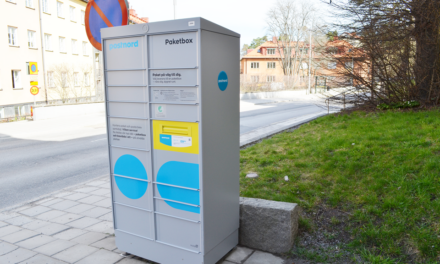
Appeals court overturns UPS tax verdict
United Parcel Service could find itself $1.8 billion richer, after a federal appeals court overturned a 1999 ruling that said UPS illegally used offshore companies as tax shelters, sending the case back to U.S. Tax Court.
In a 2-to-1 decision, the 11th Circuit Court of Appeals said the Internal Revenue Service and the U.S. Tax Court wrongly accused UPS of attempting a “sham transaction” to avoid its tax obligations. After reversing the 1999 decision, the appellate court then remanded the case back to the tax court, saying any claims by the IRS should be analyzed under provisions of the Tax Code cited by UPS.
Following the 1999 decision by Judge Robert T. Ruwe of the tax court, UPS estimated its potential liability at $1.8 billion for all subsequent years if the ruling was allowed to stand. The company then recorded a special tax assessment on its books of $1.786 billion, reducing its net income for the second quarter of 1999 by $1.442 billion. Without conceding liability, UPS then paid $1.8 billion into a special account with the IRS, pending a decision by the appeals court.
The case, known as UPS vs. Commissioner of Internal Revenue, was argued before the 11th Circuit on March 7. The case focused on the manner in which UPS decided to exit the excess-value coverage business in 1984, creating a new, independent company known as Overseas Partners Ltd., or OPL. OPL subsequently based itself in Bermuda and over the years, grew into one of the largest reinsurance companies in the world.
Prior to 1984, UPS provided excess value coverage itself. After creating and spinning off OPL, UPS engaged another U.S. company, National Union Fire Insurance Co., to provide the insurance purchased by UPS shippers.
The IRS argued in 1997 that UPS had created OPL solely to avoid federal taxes and that UPS must pay federal taxes on OPL’s income. UPS disputed the IRS’ position, saying it had followed all applicable laws and tax regulations in establishing OPL. The appeals court ruled “that OPL is an independently taxable entity that is not under UPS’s control.”
Jim Kelly, UPS’s chairman and chief executive, said, “This case was much more to us than a dispute over tax regulations and Tax Code interpretations, because we hold nothing more sacred than our reputation.”
Assuming it regains some or all of that money, UPS could use it for capital expenditures, new services or acquisitions, said Norman Black, a spokesman for the company. Black said the ruling would have no impact on customers.
“We already offer the lowest prices. That’s not changing,” he said, referring to its rates for excess-value coverage. The company claims it can insure a package valued at $300 for 70 cents, compared to $4 for the U.S. Postal Service, $2.50 for FedEx and $2.10 for DHL
Journal of Commerce












